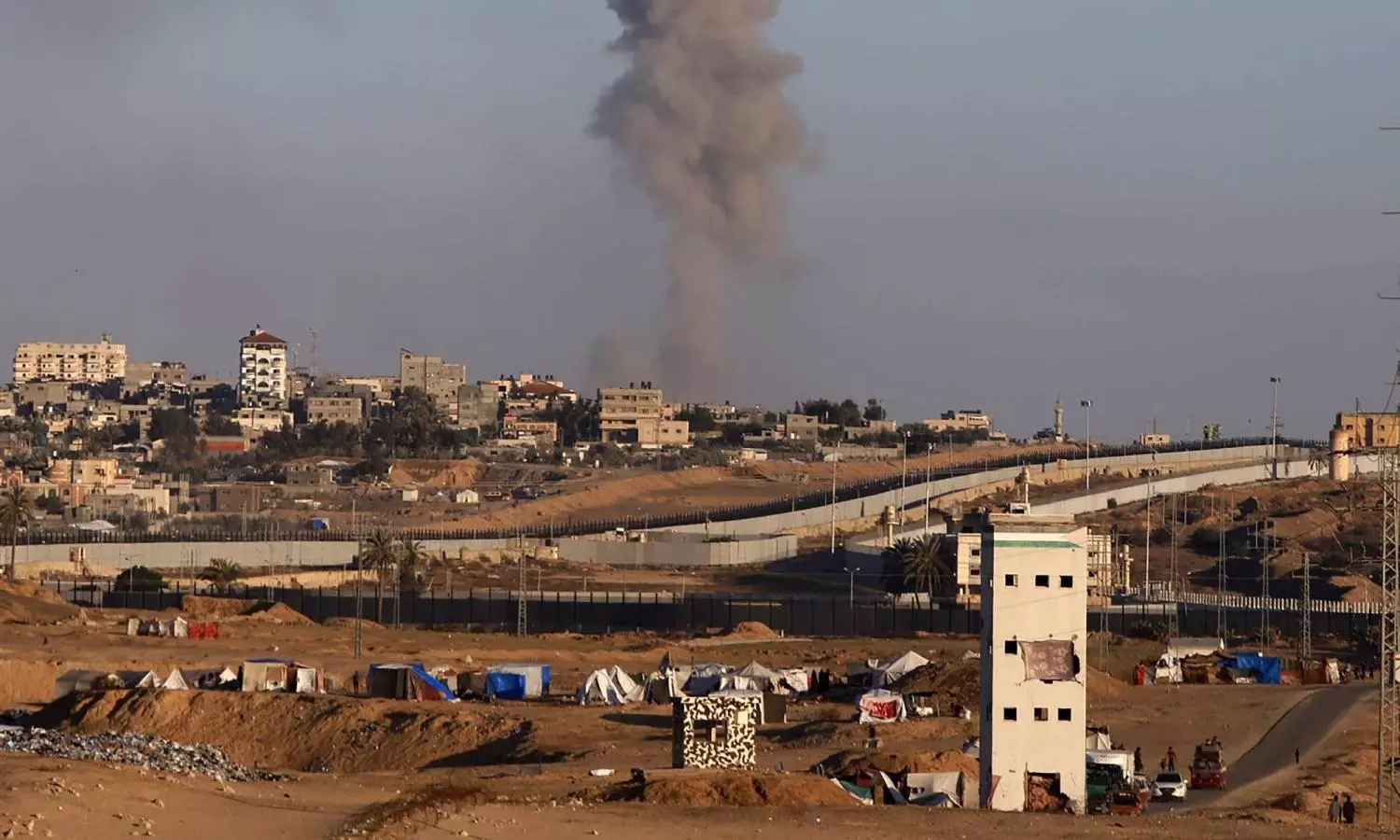
Israeli seizes control of Rafah crossing in defiance of global calls for a ceasefire
text_fieldsThe Israeli military has seized control of the Rafah border crossing with Egypt in the Gaza Strip, escalating tensions in the region as it presses forward with its offensive against Hamas. This move comes despite international appeals for a ceasefire and warnings of catastrophic consequences.
The Rafah crossing, a crucial lifeline for aid and civilian movement, fell under Israeli control as the 401st Brigade entered the area on Tuesday morning. Israeli forces claimed the crossing was being used for "terrorist purposes" and cited intelligence linking it to recent attacks on its troops near the Karem Abu Salem crossing.
Footage released by the Israeli military showed tanks entering the Palestinian side of the Rafah crossing, with flags flying atop seized territory. Israeli special forces have been conducting operations in eastern Rafah since Monday night, intensifying their bombardment of the city and causing civilian casualties.
As the conflict escalates, reactions pour in from around the world. Israeli Foreign Minister Israel Katz hailed the military's move as a step towards achieving the goals of freeing captives and defeating Hamas. However, international condemnation mounts, with calls for Israel to halt its offensive and heed the ceasefire proposal put forward by Egypt and Qatar.
Chinese Foreign Ministry spokesperson Lin Jian urged Israel to stop its attacks on Rafah, emphasizing the need to avoid a humanitarian disaster in Gaza. Jordan's Foreign Minister Ayman Safadi warned that Israel's actions jeopardize the ceasefire deal with Hamas, echoing concerns raised by King Abdullah II in a meeting with US President Joe Biden.
Meanwhile, Hamas has signalled acceptance of the ceasefire proposal, which includes a halt in fighting, the release of Israeli captives, and the withdrawal of Israeli troops from Gaza. However, Israel deems the proposal inadequate and continues its military operations in Rafah to pressure Hamas.
Amid the escalating conflict, the humanitarian situation in Gaza is worsening. With the Rafah crossing sealed off and aid deliveries halted, the enclave faces a looming famine, according to UN warnings. The closure of supply routes exacerbates the plight of Gaza's residents, especially cancer patients in need of treatment.
The United Nations, along with humanitarian organizations, expresses grave concern over the humanitarian crisis unfolding in Gaza. UN Secretary-General Antonio Guterres urges both Israel and Hamas to prioritize reaching a truce to avert further suffering and instability in the region.






















